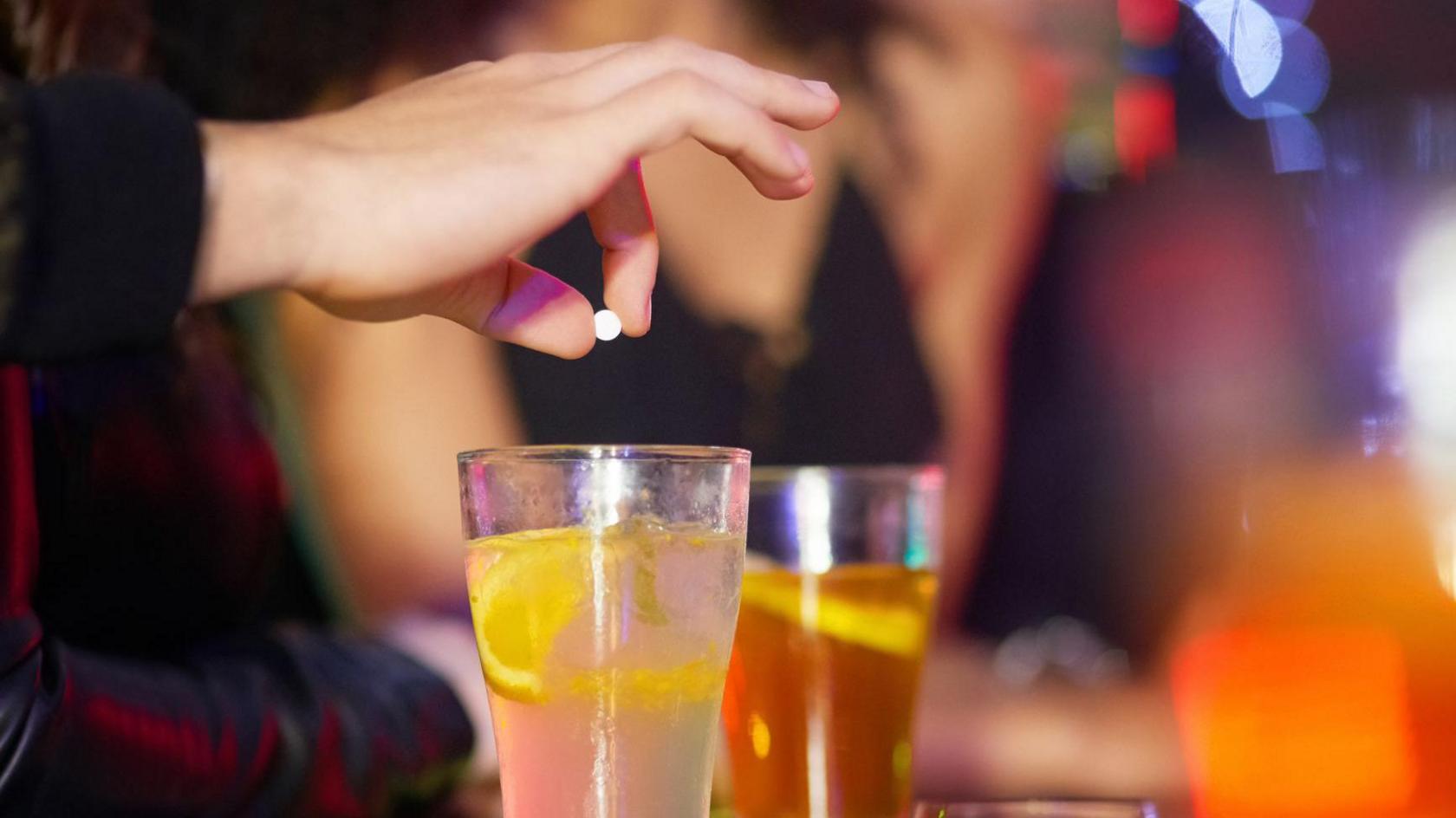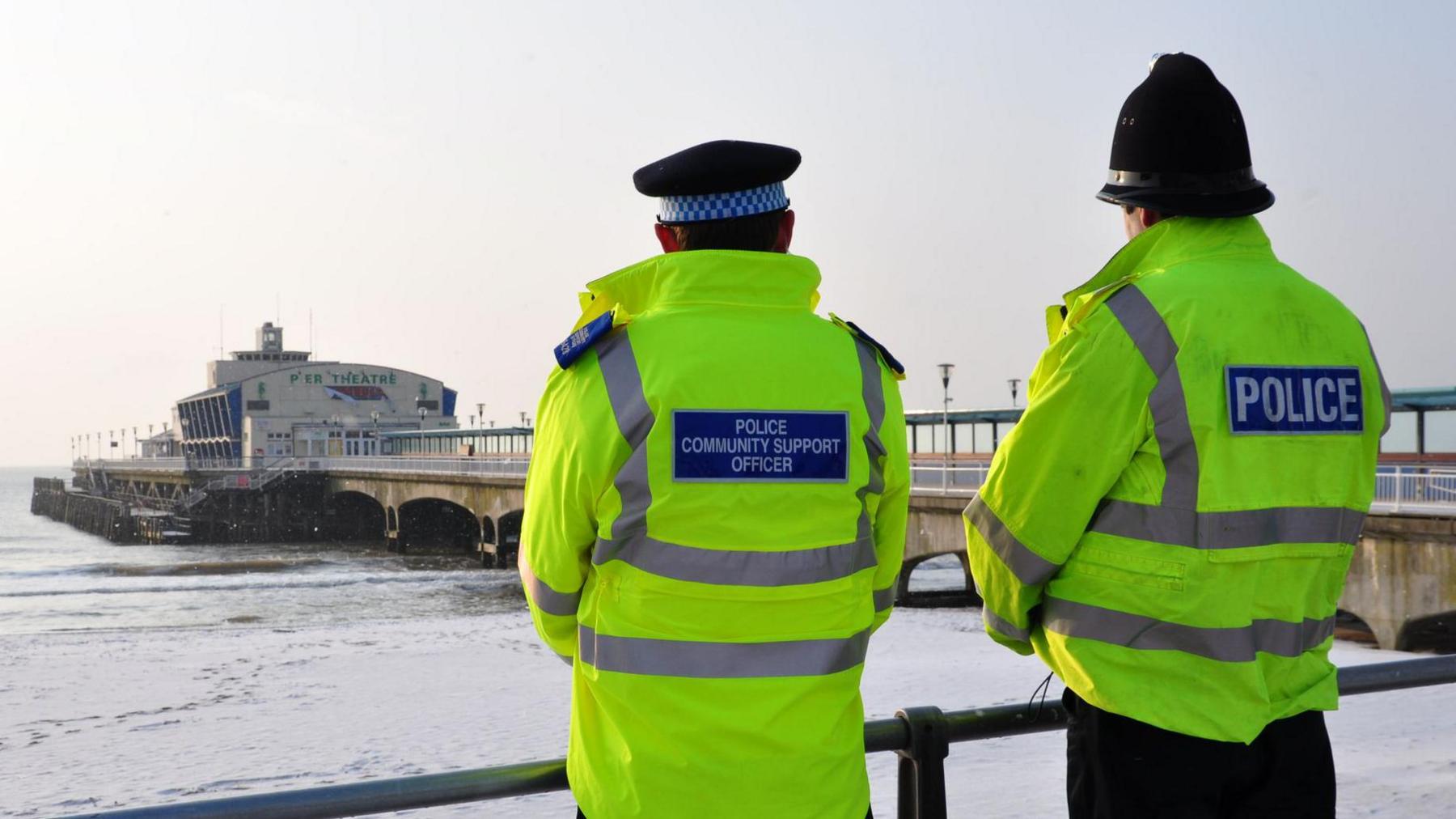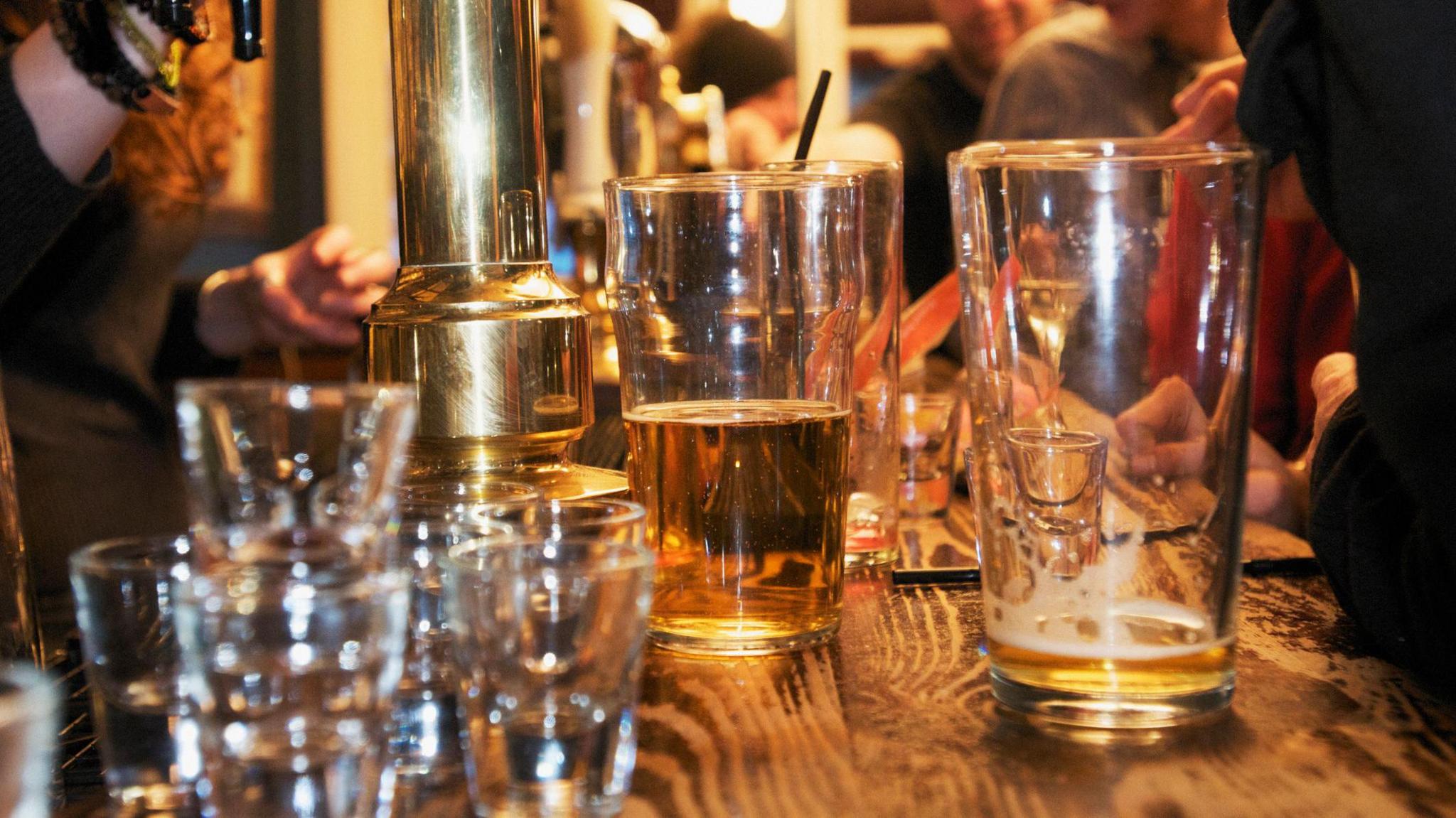Student spiking will be taken seriously, police say

Dorset Police has described spiking as an "abhorrent crime" which can have a traumatic impact on victims
- Published
Students have been told reports of spiking will be taken seriously ahead of the university year beginning.
Dorset Police said national figures usually showed a slight increase in reports of spiking during fresher's week.
The illegal activity involves giving someone alcohol or drugs without them knowing or agreeing, sometimes by putting it in their drink or food, or injecting them.
The force has warned people to look out for themselves and their friends.

Thousands of university students will return to Bournemouth towards the end of September
Across Dorset, there were 123 reports of drinks being spiked and 26 cases of needle spiking in 2022.
Dorset Police said anyone who thought they could have been spiked should tell a trusted friend, member of venue staff and police immediately, to give the best chances of collecting evidence.
Those who report spiking but have also knowingly taken illegal drugs will not get into trouble, according to Dorset Police and Crime Commissioner David Sidwick.
"Unless you’re driving, having illegal drugs in your system is not an offence and should not prevent someone reporting - we will want to make sure you’re OK," he added.
Det Supt Neil Wright warned that anyone found to have spiked another person could face a long prison sentence.
“We would also like to make it very clear that victims are never to blame and Dorset Police will always listen and take reports of spiking seriously," he said.
People are encouraged to use an online reporting tool, external on the Dorset Police website, which can also be used to get in touch on behalf of others.
Get in touch
Do you have a story BBC Dorset should cover?
You can follow BBC Dorset on Facebook, external, X (Twitter), external, or Instagram, external.
Related topics
- Published15 September 2024
